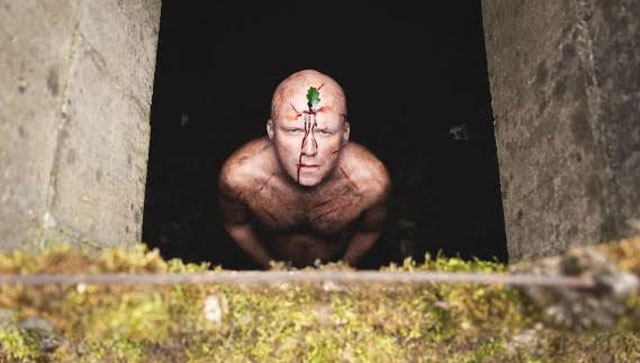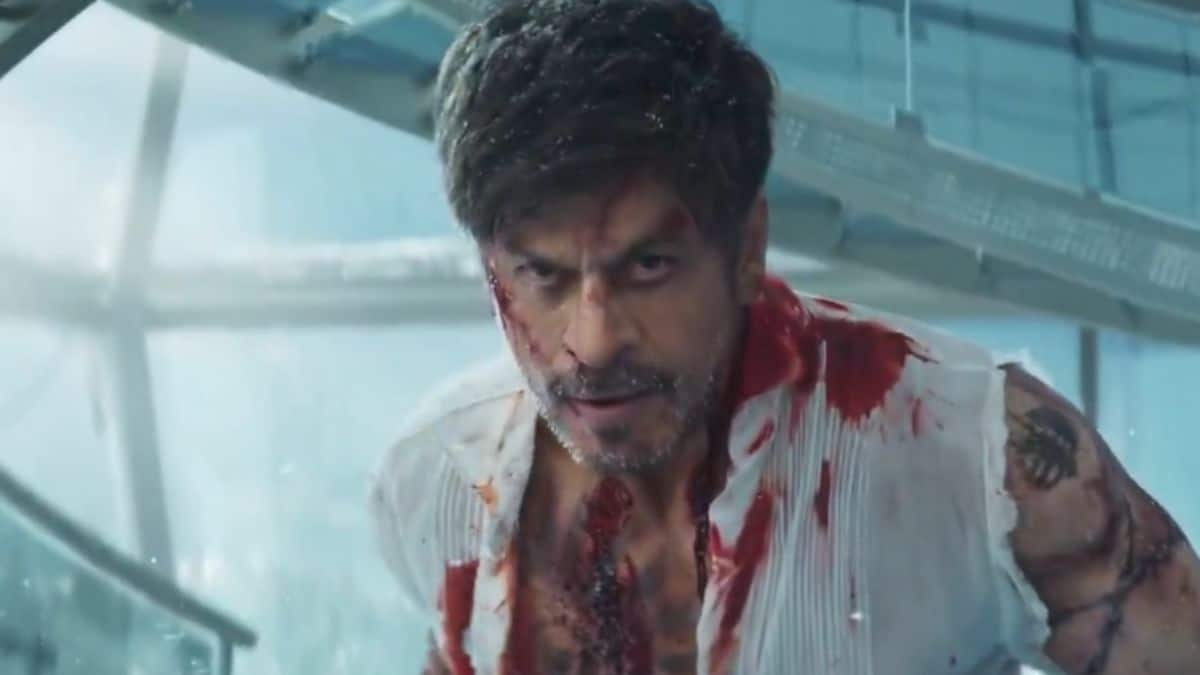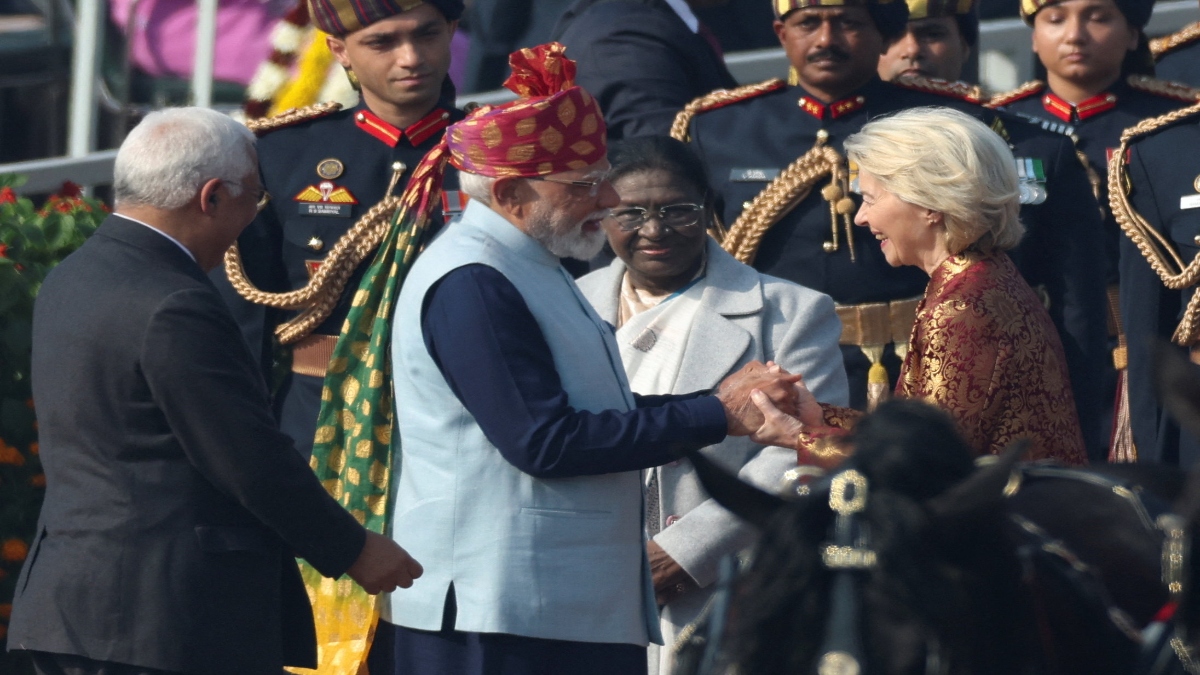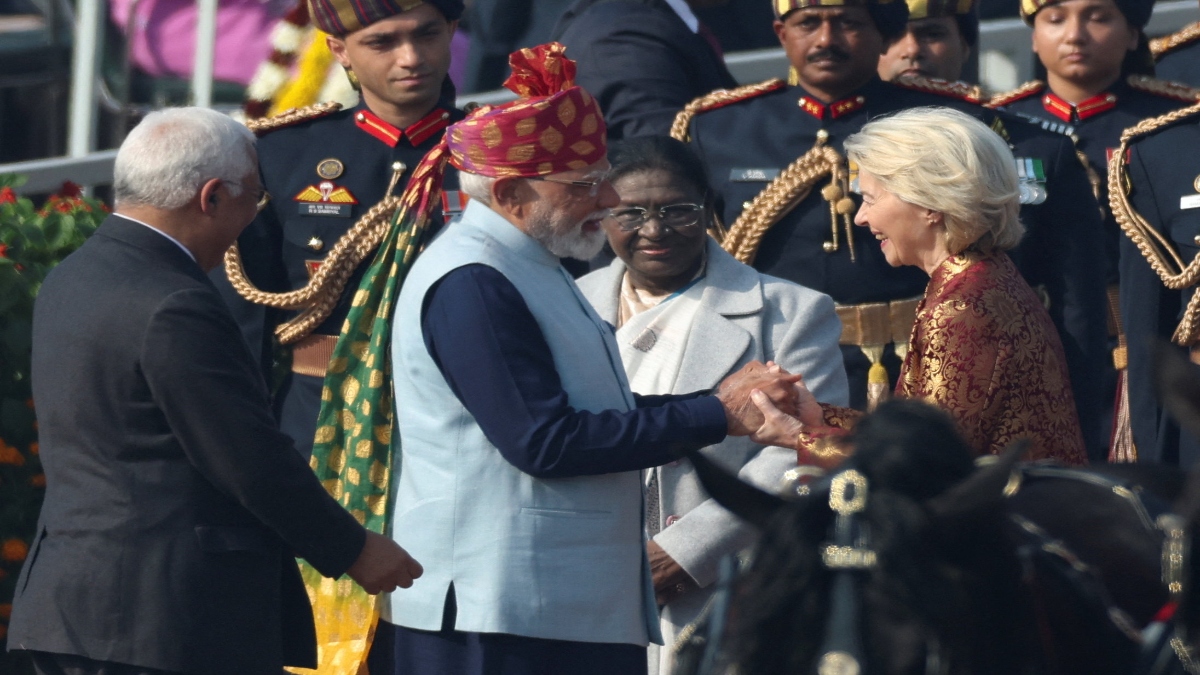The most startling yet resonant scene in Alex Garland’s new feature Men comes early in the vacation-turned-nightmare of its traumatised protagonist. Harper (Jessie Buckley) has rented a snug cottage in the English countryside to recover from the death of her emotionally manipulative husband (Paapa Essiedu). Soon after arriving, she takes a walk through the verdant woods and comes upon a long-defunct railway tunnel. She calls out a couple of notes into the darkness. As the echoes bounce off the walls, a smile lights up her face. Stepping further inside, she again calls out a series of notes till the echoes harmonise into a choral melody. There is a sense of peace and a comfort of solitude listening to this one-woman choir. Until a silhouette of a man emerges at the end of the tunnel. A tremor of unease sweeps through her as it does through the viewer. The quiet becomes disquieting. On seeing the man run towards her, she flees. The light at the end of the tunnel doesn’t promise hope in Garland’s film, but only more despair.
Though simple in its staging, this scene of a woman’s demeanour shifting to defensive mode in the presence of a man is effective in echoing the everyday fears and anxieties that women experience in a world plagued by pervasive misogyny. When the diegetic melody is used as a non-diegetic leitmotif in Ben Salisbury and Geoff Barrow’s atmospheric score, it echoes how the problem extends beyond boundaries, structural or cultural. Everything that comes after the scene, by contrast, is progressively belaboured. Harmony lapses into cacophony with symbolism and literalism caught in a war. The end result is about as hollow as the tunnel. It feels like the work of a self-satisfied writer-director who has soundproofed himself inside an echo chamber.
For a film keen on exposing misogyny in all its forms, Men doesn’t really do justice to the woman at the centre of the story. Harper is defined by little else than the trauma of watching her husband fall to his death right in front of her eyes. Her backstory doesn’t extend beyond the flashback of that day. As she is on a solo retreat, her only support system in good friend Riley (Gayle Rankin) is available only on video calls. And we don’t learn too much from these calls either. When Buckley conveys Harper’s conflicting emotions of guilt and rage through the odd anguished howl, she may very well be channelling her own frustration over being given so little to work with.
On escaping from the tunnel, Harper is terrorised by a gallery of men, all of whom are played to devilish ends by Rory Kinnear. Every attempt to find solitude and healing is hindered by the ever-present threat of men, shadowing her through the woods, spying through the windows, and invading her privacy. Misogynistic aggressions, from the overt to covert, macro to micro, an insulting remark to a hand on the knee, manifest themselves via the men Harper encounters. There is the presumptuous landlord who asks prying questions about her marital status and makes a crude comment about tampons, and then tries to ease the tension by laughing them off as jokes. There is the entitled teenager who invites her to play hide and seek, and calls her a “stupid bitch” when she politely refuses. There is the negligent policeman who is quick to dismiss her concerns over the naked stalker following her around. Then, there is the creepy vicar who puts his hand on her knee before blaming her for her husband’s death.
Games
View AllKinnear embodies every virulent strain of masculinity, from victim blamers to mansplainers to gaslighters. The bad CGI, false teeth and wigs add to the discomfort with their deliberate uncanny-valley-ness. If all the men look alike, is it a result of Harper somatising her trauma or a reflection of how misogyny has been inherited for so long that all men carry some strain of it? The answer could be one or both. Garland keeps it deliberately ambiguous, as he intends the film to be a discourse starter first and foremost, even if not a particularly interesting one.
But where the film goes pear-shaped is when it enters the second hour, once the psychological terrors make way for the physical. All the Kinnears descend upon Harper’s rental. The home-invasion showdown ends in a gonzo, squirmy, gnarly spectacle: the naked stalker’s body contorts, his belly swells up, a genital orifice gapes wide open, and the teenager emerges. The teenager in turn gives birth to the vicar. Each avatar gives birth to another in succession before taking the form of Harper’s husband. The male body becomes a nesting doll of violent rebirth, to illustrate how misogynistic behaviours are inherited. Toxic men beget toxic men in the ouroboros of patriarchy. When Harper asks her husband what he wants from her, he replies, “Your love.” Garland seems to suggest men are weak creatures and cannot survive without women carrying all their pain, insecurities and shortcomings for them. But love doesn’t justify all the suffering Harper is put through. Nor does its invoking serve any form of meaningful closure.
Flashbacks in the middle take us back to the day that continues to haunt Harper: the day she decided to leave her marriage. She tells her husband she is divorcing him but he threatens to kill himself. When she calls him out on his manipulative ways, the argument gets explosive and he gets abusive. This scene is lit in an orange glow that feels less like the beginning of a new day, more like a harbinger of the horrors to come. DP Rob Hardy, who has collaborated with Garland on all his projects since Ex Machina, employs colour saturation to an eerie effect. The lush foliage of the countryside seems unnaturally green. Every time the camera lingers on the greenery, that feeling only grows oppressive.
The repetition of imagery is meant to reinforce the ideas of the film, but Garland insists on underlining, italicising, boldfacing and — just in case anybody failed to grasp what he is unpacking — highlights them as well. On arriving at the cottage, Harper bites into an apple from the orchard and the landlord admonishes her over stealing the “forbidden fruit.” As a joke, he insists. The ideas of life, death and rebirth are emphasised with dandelions, maggots feeding on a deer carcass, and Pagan symbols (like the Green Man and Sheela-na-gig). The overemphasis starts to feel like mansplaining in itself. Be warned: it may be hard to get through the film without a few eye-rolls.
Men is available to rent on Amazon Prime Video.
Prahlad Srihari is a film and music writer based in Bengaluru.
Read all the Latest News, Trending News, Cricket News, Bollywood News, India News and Entertainment News here. Follow us on Facebook, Twitter and Instagram


)

)
)
)
)
)
)
)
)



